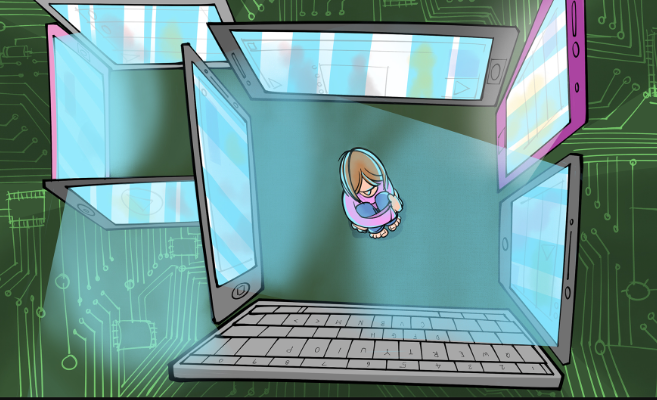Internet addiction is a growing concern in today’s digital age. It can interfere with daily life, relationships, and mental health. Fortunately, there are strategies for internet addiction treatment.
- Set Boundaries
Setting clear boundaries is essential for managing internet use. Define specific times of day for internet activities and stick to them.
- Blocking Apps
Internet blocking apps can help control your online habits. These apps restrict access to specific websites or limit your overall internet usage.
- Daily Schedule
Having a daily schedule can provide structure and reduce idle time spent online. Plan your day with a mix of:
- Work
- Hobbies
- Exercise
- Social activities
- Offline Activities
Find hobbies and activities that don’t involve the internet, such as reading, painting, hiking, or playing a musical instrument.
Engaging in offline activities can provide a healthy distraction and help you reconnect with the physical world.
- Mindfulness
Practicing mindfulness can help you become more aware of your internet use and the triggers that lead to it. Techniques such as meditation, deep breathing exercises, and mindful walking improve focus.
- Realistic Goals
Set realistic and achievable goals for reducing your internet use. Start with small steps, like cutting back your usage by 30 minutes each day.
Gradually increase these goals as you become more comfortable with less screen time.
- Seek Support
Talk to friends, family, or a therapist about your internet addiction. Support from others can provide encouragement and accountability.
- Monitor Your Use of the Internet
Keep track of how much time you spend online each day. Being aware of your habits can help you identify patterns and areas where you can cut back.
- Make Tech-Free Zones
Designate certain areas of your home as tech-free zones, such as the bedroom or dining room. This helps create a clear separation between online and offline spaces. Spend time in these zones engaging in activities that don’t involve screens, promoting a healthier balance.
- Reflect on Your Online Behavior
Take time to reflect on your internet use and its impact on your life. Ask yourself questions like:
- How is my internet use affecting my relationships?
- What am I missing out on because of my online habits?
Reflection helps you understand the consequences of excessive internet use and motivates you to make positive changes.
How to Apply These Tips?
Integrating them all into your daily life can help you manage and overcome internet addiction.
- Plan
Create a detailed plan that incorporates these techniques. Outline specific actions you’ll take daily, weekly, and monthly to reduce your internet use. Having a clear plan provides direction and keeps you focused.
- Consistency
Consistency is key to making these techniques effective. Practice them regularly, even when you’re feeling good.
- Adjustment
Be flexible and willing to adapt your approach as needed. Overcoming internet addiction is a dynamic process, and what works today might need adjustment tomorrow.
- Feedback
Regularly check in with your support network and seek feedback. They can offer valuable insights and suggestions for improving your techniques.
Open communication enhances your recovery journey.
- Reflection
Take time to reflect on your progress and the effectiveness of your strategies.
Celebrate your successes and learn from any setbacks. Reflection helps you stay motivated and committed to your goals.






